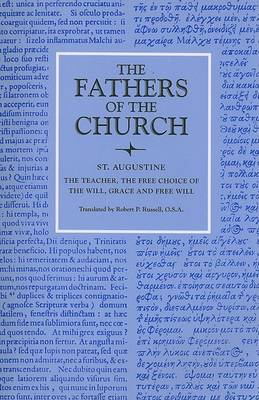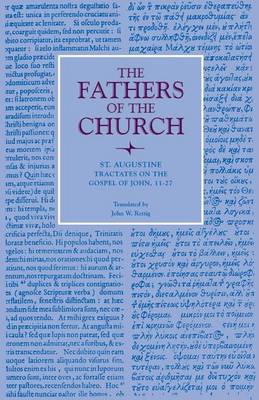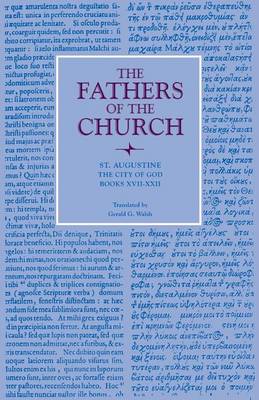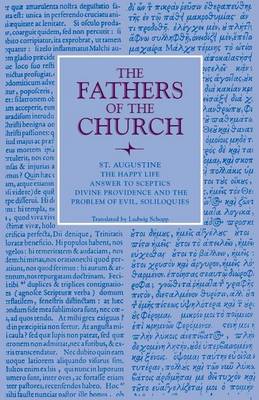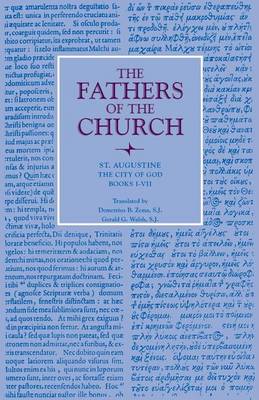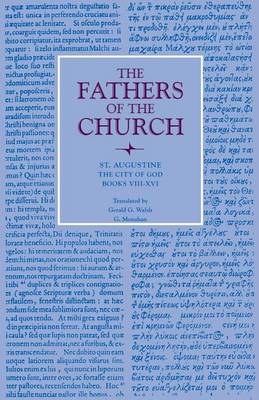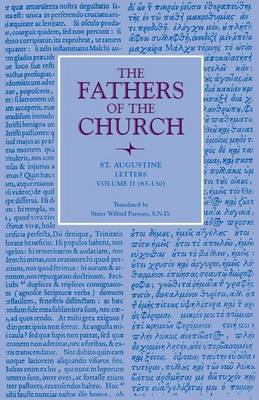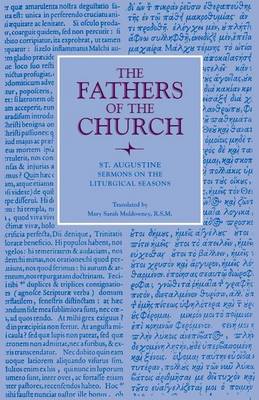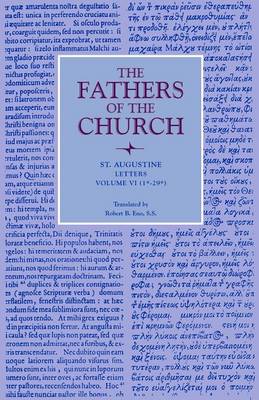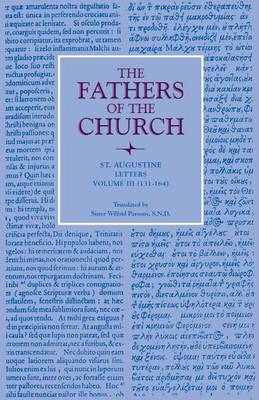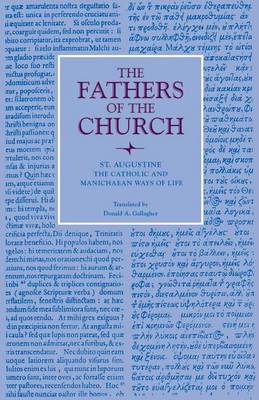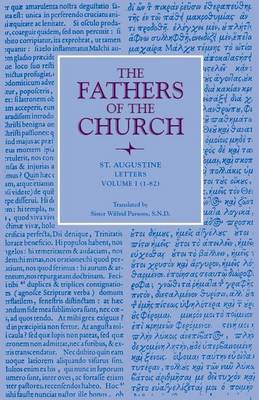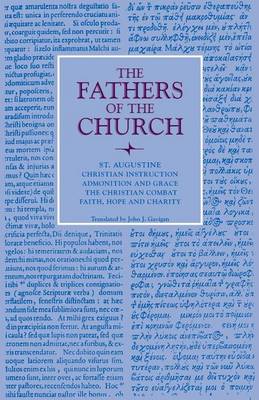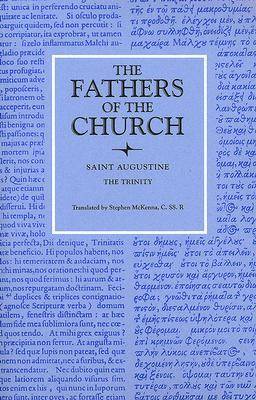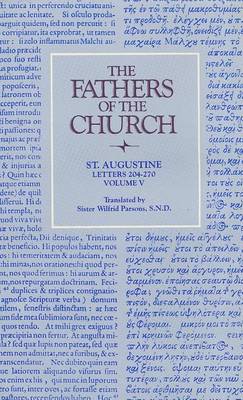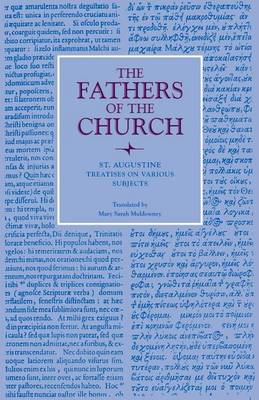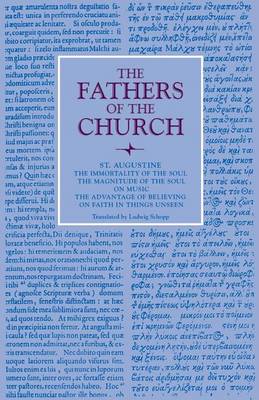Fathers of the Church
1 primary work • 23 total works
Book 59
The Teacher; The Free Choice of the Will; Grace and Free Will
by Augustine
Of the 124 tractates that St. Augustine delivered to his congregation at Hippo Regius, the first fifty-four form a distinct group. They differ in length and character from the remaining tractates, contain many chronological references, and consist of bitter attacks on the Donatists and other heresies. The remaining tractates (55-124) are brief and contain no chronological references to prior tractates. Scholars maintain that the latter were dictated for later reading to the people rather than extemporaneously delivered.
This volume contains tractates 11-27. In 11-16 Augustine continues the attack, begun in tractates 1-10, on the heresies of Manichaeism, Donatism, and Pelagianism. Beginning with the seventeenth tractate, however, he focuses greater attention on Arianism, a Trinitarian heresy whose major tenet was that divine being was uncreated, unbegotten, and unique and that Christ was not true God but a creature who had a beginning. Augustine also attacks lesser Christological heresies: the Apollinarists, who assert that Christ did not assume the complete human nature but only the body, and Photinus of Sirmium, who held that Christ did not except for his miraculous birth and acquired a plenitude of grace through moral perfection.
In these tractates Augustine combines scriptural exegesis, the refutation of false teachings, and theological reflections with the spiritual and moral instruction of his congregation. "Look for separation in the Father and Son, you do not find it; even if you have soared high, then you do not find it; if you have touched something beyond your intellect, then you do not find it. For if you busy yourself in these things which the erring mind makes for itself, you speak with your own images, not with the Word of God; your images deceive you. Transcend the body and savor the mind. Transcend the mind also and savor God."
The Happy Life; Answer to Sceptics; Divine Providence and the Problem of Evil, Soliloquies
by Augustine
Four Anti-Pelagian Writings
by Augustine, John A Mourant, and William J Collinge
This volume brings together writings from early and late stages of Augustine's involvement in the Pelagian controversy. On Nature and Grace and On the Proceedings of Pelagius both date from A.D. 415-16 and constitute two of Augustine's most extensive treatments of the actual words of Pelagius. On the Predestination of the Saints and On the Gift of Perseverance were probably written in A.D. 428, near the end of Augustine's life. Augustine's opponents in his writings, he admits, are not really Pelagains at all. They were monks of Provence, led by John Cassian, who were disturbed by the more extreme consequences of the theology of grace and predestination that Augustine had worked out in his controversy with the Pelagians. Since the sixteenth century, they have been labeled "semi-Pelagians."
Taken together, these writings provide an occasion to examine the continuity and development of Augustine's theology of grace. They also afford much insight into the fifth-century status of many theological questions that are alive today, such as the extent of the damage done to human nature by sin, the theology of original sin, the effects of baptism, and the true meaning and scope of God's salvific will.
These treatises include some of Augustine's most significant statements on grace. Intended for scholars and students of theology and philosophy, this edition includes three treatises translated for the first time from modern critical texts. William Collinge's trenchant introductions offer detailed accounts of the historical and critical work done over the hundred years since the last publication.
Most of the works of St. Augustine of Hippo (354-430) have been extant and studied for centuries by Christians throughout the world. Since this Doctor of the Western Church has long been the best known and most widely read of the Latin Fathers, it is so much more unexpected that a previously unknown work should be found. Johannes Divjak found not only a single work but in fact a whole collection of letters, which he published in a critical Latin edition in 1980.
This volume contains the first English translation of these newly discovered letters. The letters range in size from short memoranda to long treatises on various subjects. In addition, there are three other previously unknown letters: two written to Augustine by Consentius, a North African rhetorician, and one written by Saint Jerome to Aurelius of Carthage.
These letters, taken as a whole, present a vivid and fascinating view of life in North Africa at the beginning of the fifth century. In addition to the comments about ecclesiastical and episcopal affairs, there are also letters on various threats to peace and security common in this period of the late empire, on slavery and the growth of the slave trade, and on Roman involvement in African affairs, both ecclesiastical and civil.
There are letters dealing with moral questions and pastoral problems, in both marriage and the family, as well as in larger areas of doctrine and discipline in the Church. The conflict resulting from the end of the Donatist schism becomes clearer, as does the refrain of desperation stemming from an inadequate supply of clergy for parishes needing to be served. A large number of these letters illustrate the day-to-day worries of a fifth century North African bishop: clerical scandals, Church finances, people seeking sanctuary in a church (and the ensuing problems with the civil authorities), and disputed episcopal succession.
Until the time as scholars agree on a numbering system that will integrate these letters into a previously known corpus of Augustinian letters, they are numbered 1*-29*, with the asterick added to distinguish them from letters 1-29 of the traditional body of letters.
Christian Instruction; Admonition and Grace; The Christian Combat; Faith, Hope and Charity
by Augustine
The treatises included are: The Christian Life (De vita christiana), Lying (De medacio), Against Lying (Contra mendacium), Continence (De continentia), Patience (De patientia), The Excellence of Widowhood (De bono viduitatis), The Work of Monks (De opere monachorum), The Usefulness of Fasting (De utilitate ieiunii), and the Eight Questions of Dulcitius (De octo Dulcitii quaestionibus). Other works of moral and practical theology are not included, notably the De catechizandis rudibus, and the De doctrina christiana, but arrangements have been made to present these in other volumes. Indeed, these two cannot very well be called 'minor' works.
The essay, The Christian Life, is Pelagian in tone and is definitely not St. Augustine's, but it is included here because it comes from the same general period as the other essays and treats of a similar subject. Moreover, it has special interest in that it probably was written by a close follower of Pelagius, one of St. Augustine's celebrated opponents.
Each treatise in this volume has its own introduction, giving pertinent information for an intelligent understanding of the essay and other matters of general interest.
